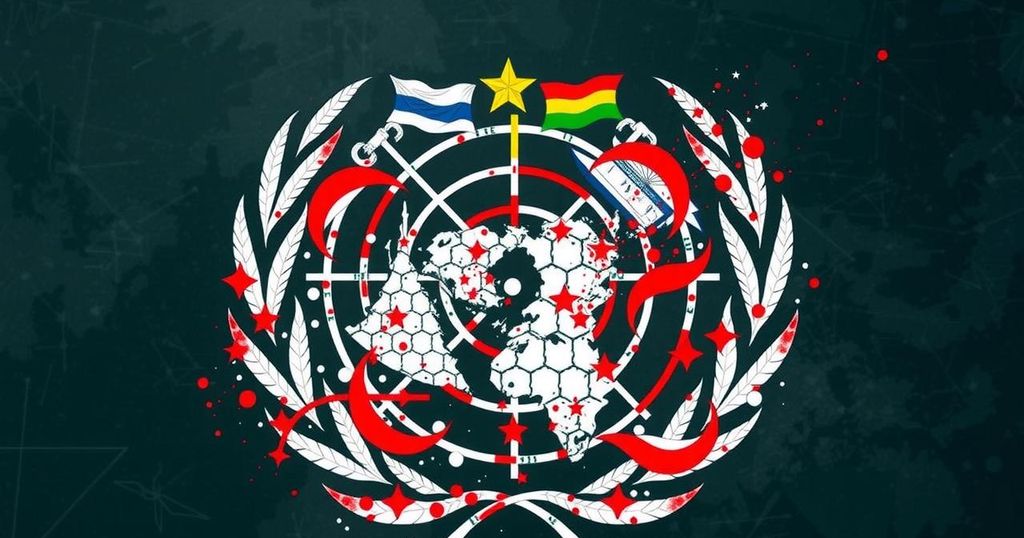On November 18, 2024, Russia vetoed a UN Security Council resolution aimed at establishing a ceasefire in Sudan, where conflict has raged since April 2023. British officials criticized the veto as obstructive, and the humanitarian crisis has escalated, with tens of thousands dead and over 11 million displaced.
On November 18, 2024, Russia vetoed a United Nations Security Council resolution aimed at instituting an immediate ceasefire in Sudan, where a conflict has persisted since April 2023 between the Sudanese armed forces and paramilitary groups. The resolution, proposed by Britain and Sierra Leone, sought to halt hostilities and initiate negotiations for a national ceasefire. In response to the veto, British Foreign Secretary David Lammy expressed outrage, labeling it a disgrace and criticizing Russia for blocking collective action to address the humanitarian crisis. The ongoing violence in Sudan has resulted in tens of thousands of casualties and over 11 million displaced individuals, with UN officials highlighting the dire humanitarian situation, which deteriorates daily. Russia’s decision came amidst escalating tensions globally, notably exacerbated by recent developments involving U.S. military support for Ukraine. Russian officials justified their veto by raising objections to the resolution’s implications and asserting that it aimed to undermine Sudan’s legitimate authorities. The conflict has drawn significant international concern, but the ability of the UN Security Council to mediate effectively has been severely hampered by divisions among its permanent members, primarily Russia and the United States. With the conflict intensifying and no resolution in sight, the plight of civilians continues to worsen, underscoring the urgent need for international intervention.
Since April 2023, Sudan has been embroiled in a violent conflict between General Abdel Fattah Al Burhan’s regular army and the Rapid Support Forces led by General Mohamed Hamdan Daglo. This struggle for power has led to a drastic humanitarian crisis, resulting in a staggering number of casualties and displacement. Previous attempts by international bodies to address the escalating violence have been complicated by geopolitical tensions, particularly those involving Russia and the United States, which have influenced international policy decisions regarding conflict resolutions in the region.
The veto by Russia illustrates the ongoing challenges within the UN Security Council regarding international mediation in conflicts marked by deep political divisions. British officials have condemned this decision, while humanitarian conditions in Sudan continue to deteriorate due to ongoing violence. The need for a cohesive international response to stabilize the situation in Sudan is critical, as millions face severe humanitarian hardships amid continued hostilities.
Original Source: www.jordantimes.com







